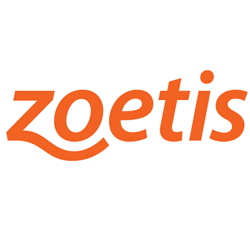Introduction
Vaccination is an essential component of preventive pet healthcare and an important pathway to nurturing a long-term veterinarianclient- patient relationship. Universal, routine vaccination for highmorbidity or high-mortality diseases such as canine distemper, canine parvovirus enteritis, and rabies is necessary for individual health and to maintain herd immunity to these infections, thereby reducing the risk for disease spread and outbreaks. Recognizing that there is hesitancy and skepticism in the human population to vaccination, client education can play a key role in helping pet owners understand that vaccination is a safe, effective, and necessary part of their pet’s healthcare plan and that it acts as a barrier to zoonotic diseases that can affect client households. All members of the veterinary healthcare team should be able to communicate a consistent, unified message to clients about the importance of immunization against preventable infectious diseases. Protocols for baseline and individualized vaccination plans are useful tools not only for implementing vaccination practices but also for client education.
These guidelines include updated vaccination recommendations and dosing schedules for canine vaccines licensed in the United States. These recommendations are presented in easy-to-reference tables, categorized by core and noncore vaccine antigens. Core vaccines are defined as those recommended for all dogs irrespective of lifestyle, e.g., rabies. Noncore vaccines are those recommended for some dogs based on their risk of exposure when factors such as lifestyle, geographic location, and endemic conditions are considered, e.g., Lyme disease (Borrelia burgdorferi infection). Because animal shelters represent one of the most challenging environments for the prevention of canine infectious disease, these guidelines include a detailed discussion of current recommendations for vaccination of shelter dogs—at presentation, as resident animals, or in case of a disease outbreak. A simplified approach to determining the role of patient serologic titers as indicators of the need for primary or repeat vaccination is also described.
Licensed canine vaccines have a high degree of proven safety and efficacy. For this reason, dogs that present with an incomplete or ambiguous vaccination or health history can still be vaccinated with the expectation of a protective immune response and a low risk of serious postvaccination adverse effects. Stated another way, veterinarians can assume that the benefits of vaccination far outweigh the risks in cases of dogs with unknown immune status or vaccination history—a common occurrence in veterinary practice. Examples of these real-world scenarios include the possibility of recent natural exposure, absence of serologic data to guide a vaccination decision, or suitability for noncore vaccines such as Leptospira spp. Thanks to the reliability of the licensed vaccine armamentarium, a good rule of thumb is, “When in doubt, vaccinate.”







